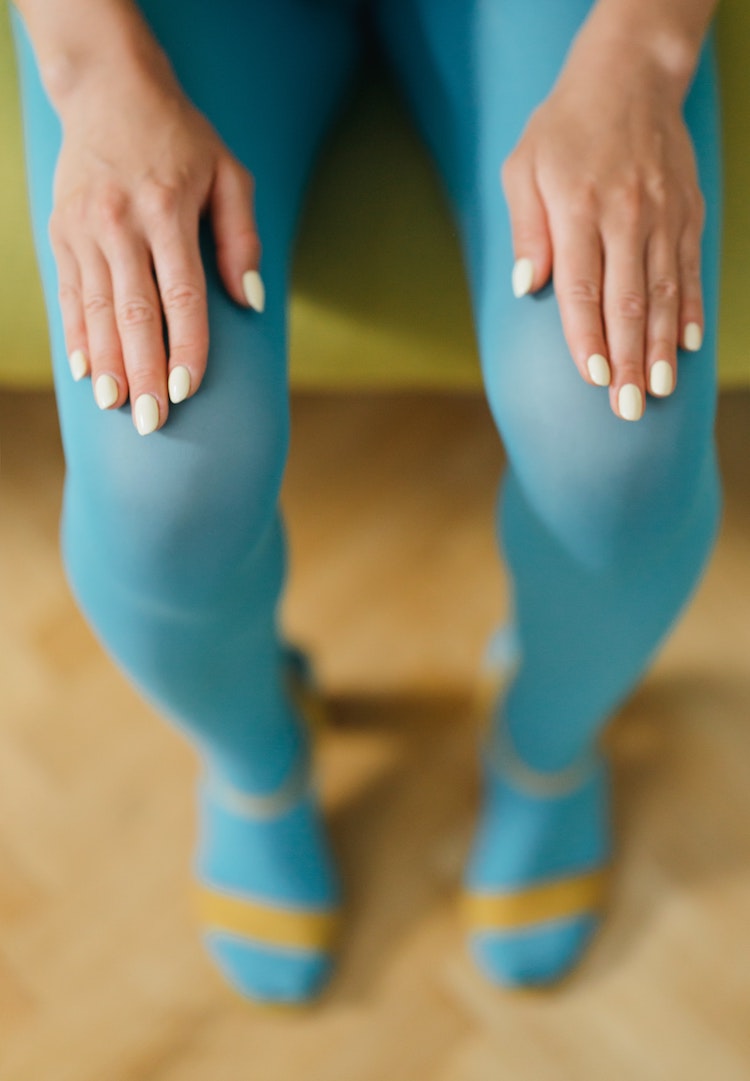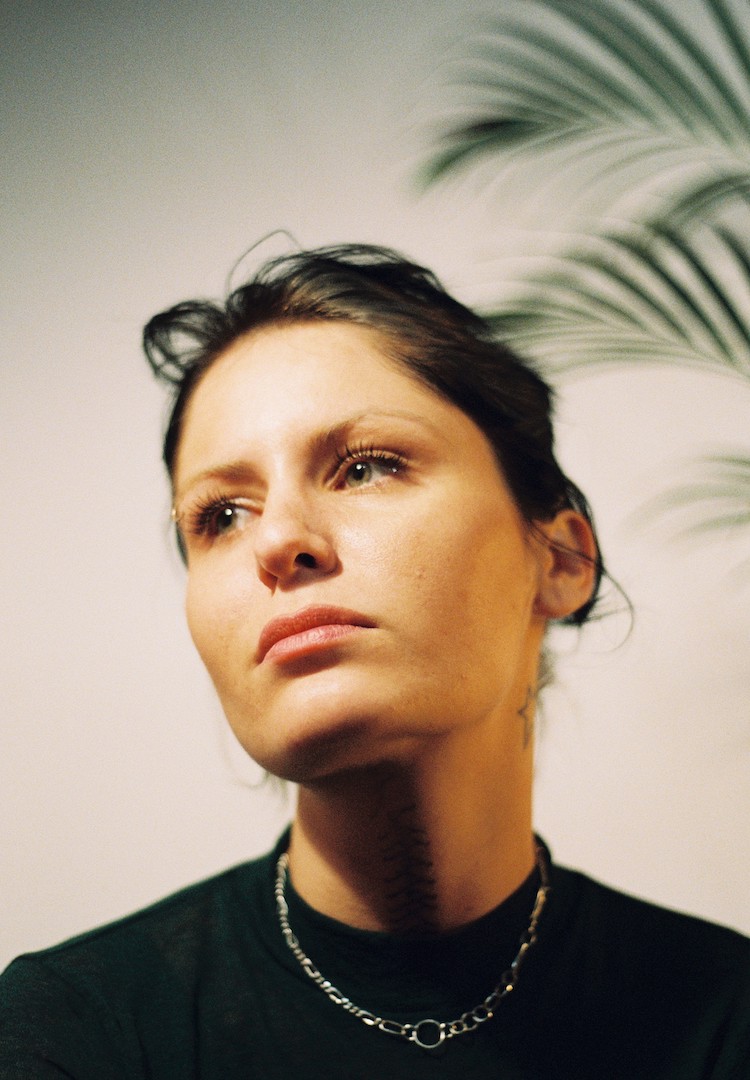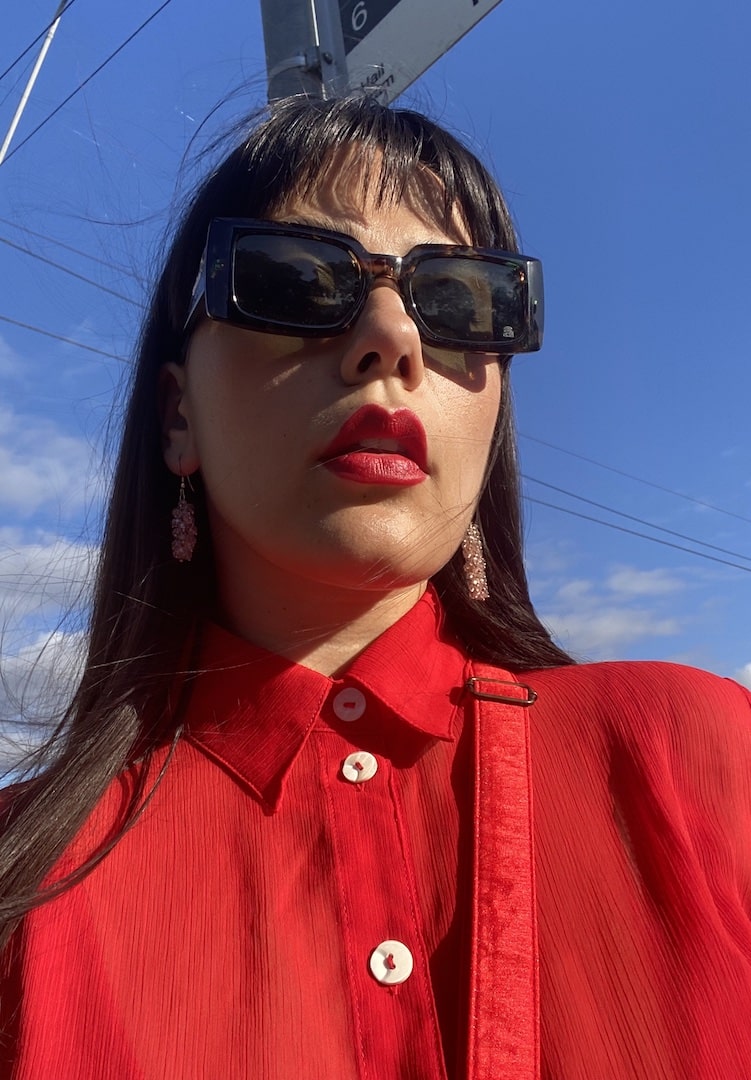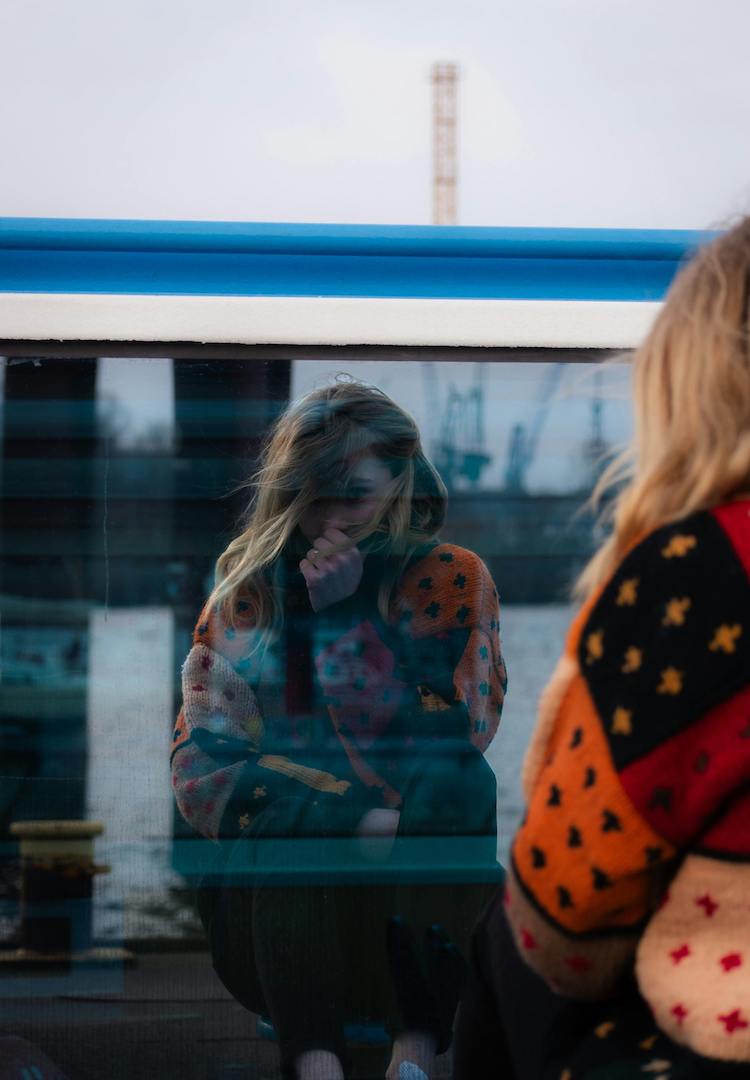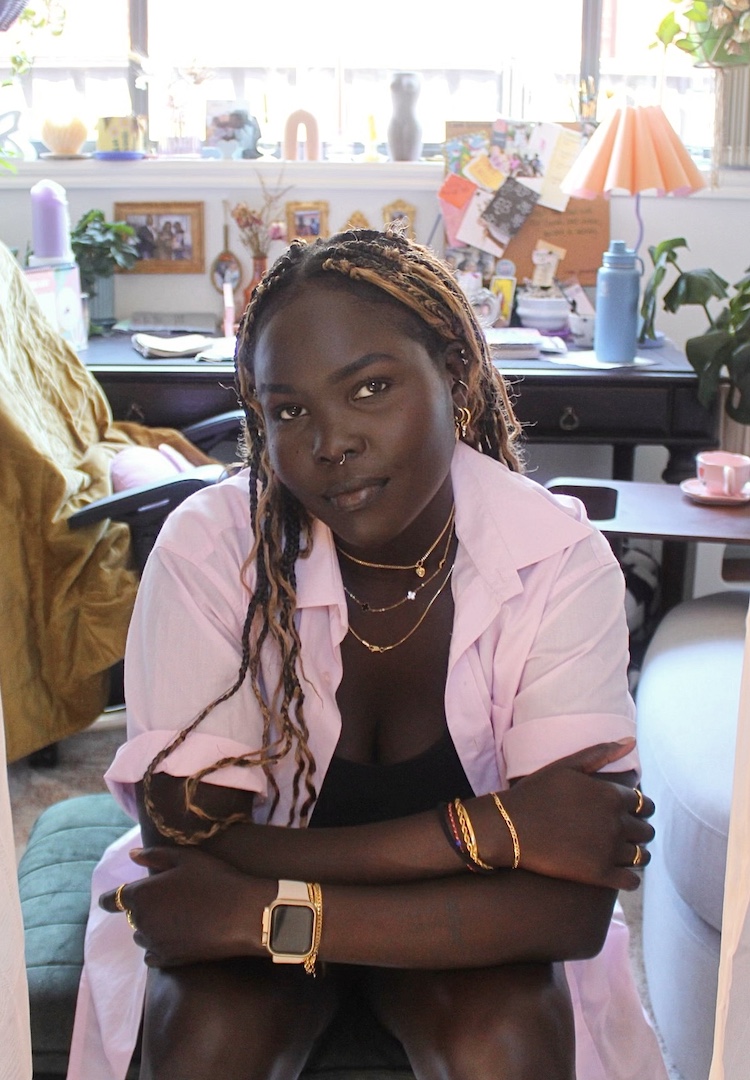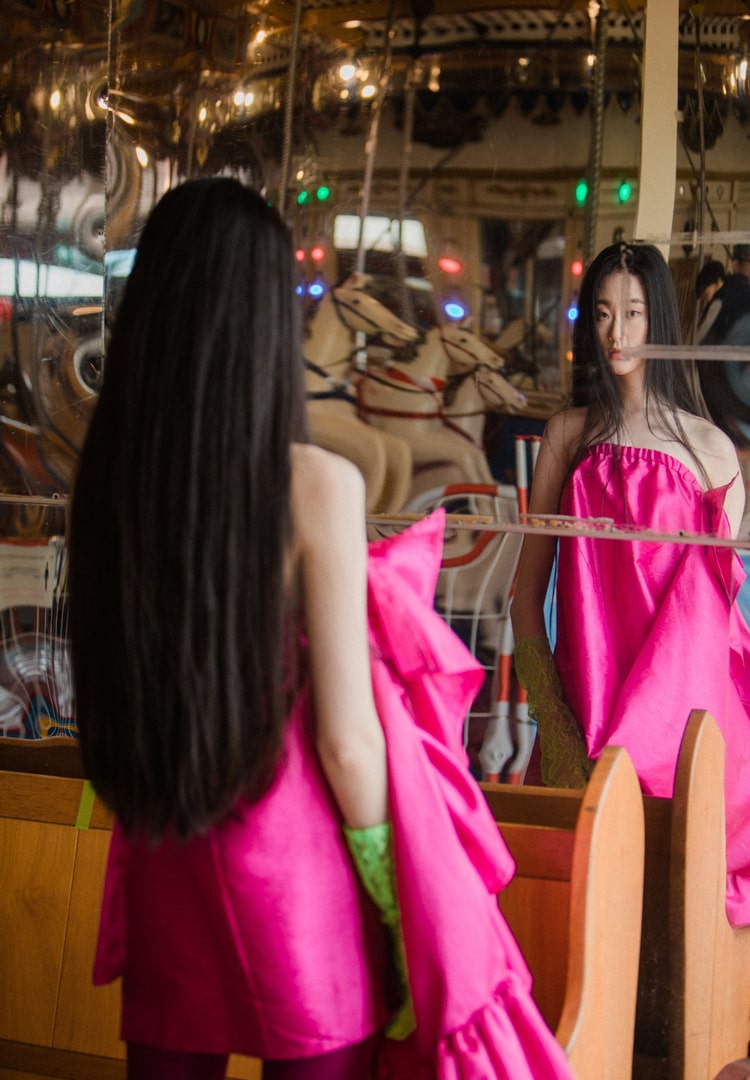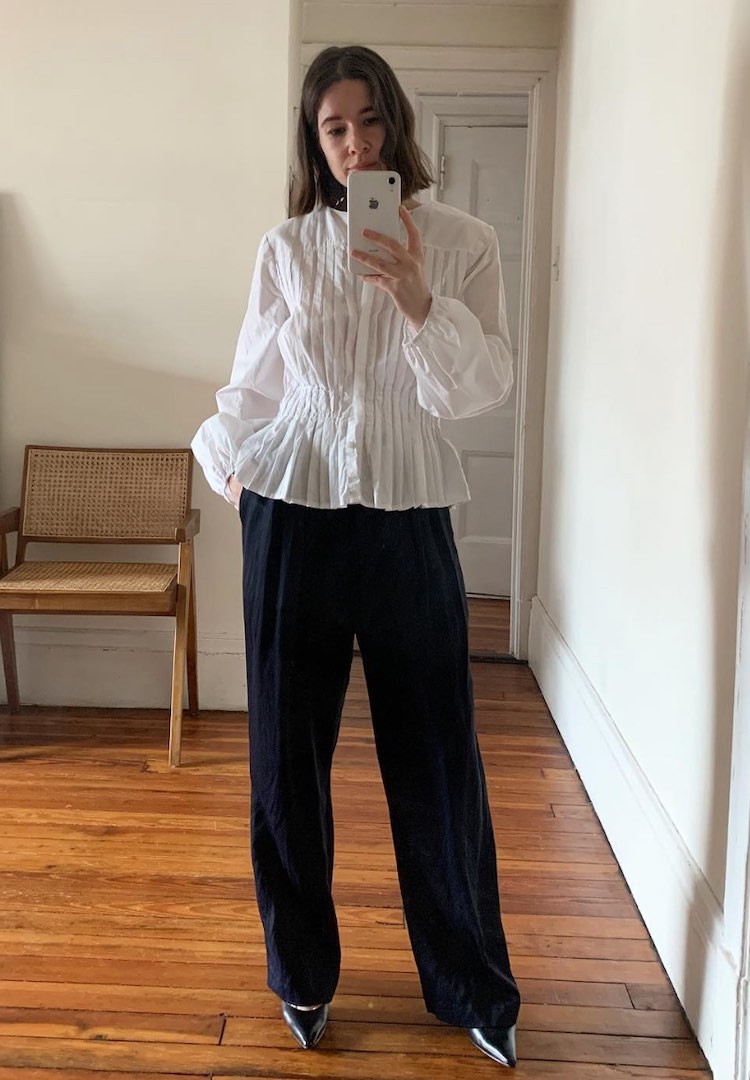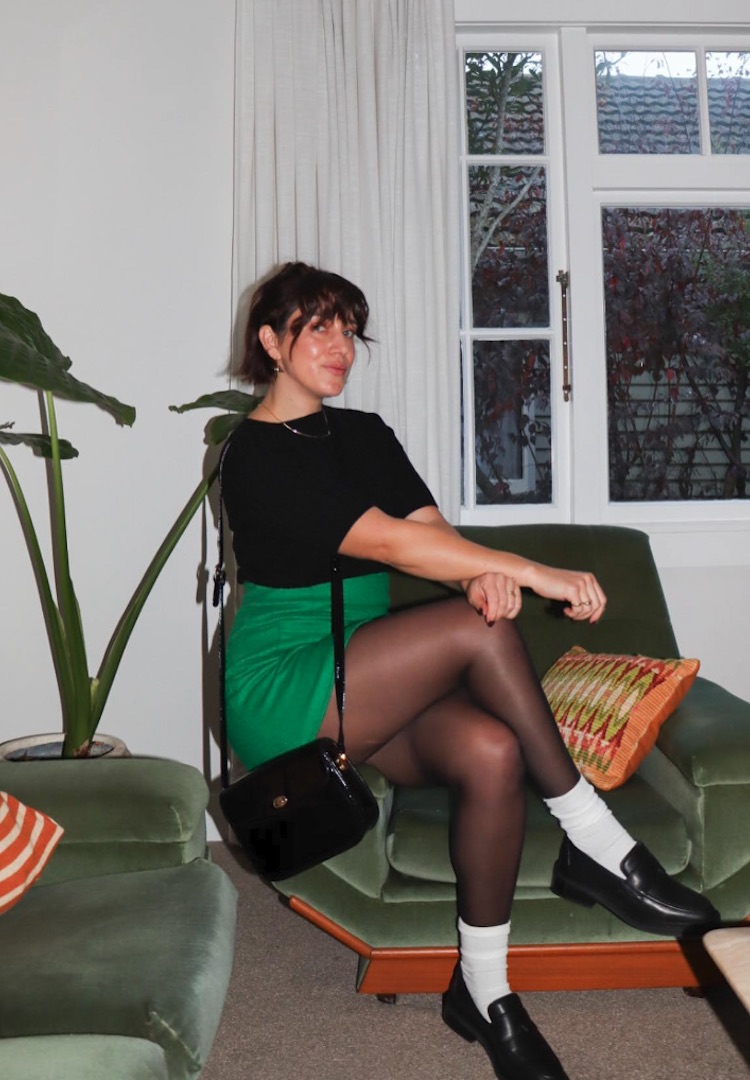“I was so thrown off by the highs and lows”: Australian author Madison Griffiths on writing a book about her abortion
photography by ruby healey
words by evie dinkelmeyer
“Your body is telling you one thing, and society’s got its little voice in your ear as well.”
Nearly a year after the shock overturning of Roe v. Wade in the United States, abortion discourse has become even more divisive, often careening between staunchly pro-choice and the complete stripping away of abortion rights. Each individual experience with abortion is going to feel different, and navigating the cultural noise can be challenging.
Melbourne writer, artist and producer Madison Griffiths knows this firsthand. Her debut book Tissue draws on her experience with abortion. Madison dissects the internal aftermath of the procedure, but also its external implications, both in social circles and within our increasingly politicised world.
For more on women’s sexual health, head here.
Madison has been publishing her essays and articles for the better part of eight years, writing keenly on issues that primarily impact women. As she puts it, it’s “the big wound of misogyny” that she’s drawn to.
Once she started writing about her abortion experience, she tells me she “kind of opened up a can of worms” and found herself wanting to explore the topic in depth. She says writing a book is “definitely something she always had her sights on”, but tells me it’s not like she sat down and was like “my first book will be a non-fiction book about my abortion”.
On a crisp Melbourne morning, I spoke with Madison over Zoom to hear about her journey post-procedure and what it’s been like to create her debut book from this place of intense vulnerability.
Hi Madison. Your forthcoming debut book Tissue is inspired by your own abortion. How do you feel about being so vulnerable publicly?
It has been really strange because I can’t really anticipate what that will look like. I very deliberately wanted to put a face or name to an experience that is incredibly common and vilified. I think in doing that, there is the capacity for people to see the full story of a human being behind that choice, as opposed to just being able to determine someone’s worth based on that choice and that choice alone.
I very deliberately wanted to create a character, so to speak. Obviously, the character that I write is myself… I wanted to show someone who the reader may or may not agree or empathise with at times, and other times definitely does. I want there to be proof of fuck ups – I wasn’t caring to be this ideal candidate in abortion discourse.
I guess you’ve had a taste of sharing that kind of vulnerability through some other pieces you’ve written. I read your essay ‘The Scripture of the Heaviest Kind’ and I thought it was really beautifully written. You wrote that you went sober after your abortion, can you speak a little on that?
Thank you… I think there’s something really complex that happens when you encounter something bodily, like a pregnancy. Your body is telling you one thing, and society’s got its little voice in your ear as well. You’re getting this influx of pregnancy hormones. You feel to some extent that you ought to be happy about this, [and] there’s some biological thing happening, that makes you [think] if you don’t feel thrilled, it makes you feel really weird and bad and complex about that.
I think that I was so thrown off by the highs and lows and the complexities of making sense of that unwanted pregnancy, that I needed some clarity. I wanted to return to my body, but not in the way that the pregnancy had found it if that makes sense. It felt to me like there was an element of restoration that needed to take place, and I thought that perhaps the way to do that would be to namaste my way into good health. It was an important decision at the time, for sure.
Do you have a particular reader in mind for Tissue? Were you writing for a certain demographic?
I think inevitably, the demographic that I tend to write for are people that have either experienced an abortion or have the makeup to experience an abortion. In saying that, I really, really hope (and I think this is part of the reason why I wanted the title [of this book] to not necessarily be so obvious) that people that haven’t usually engaged with abortion will consider its structure and its makeup and its philosophy and how it kind of functions in the world. Inadvertently, they are the ones that are benefiting from abortion.
View this post on Instagram
When we think about abortion discourse, it’s very isolated to the experience of the person actually having an abortion but my goodness, the amount of cis men whose lives have benefited from reproductive activity. I think also, it’s a good opportunity for cis men to see… how the men in my life responded and reacted to abortion.
That is something that I feel like many men don’t discuss amongst their friendship circles. The amount of men having unprotected sex that would not discuss the repercussions. I would love to know what those social networks would look like if abortion was openly discussed. It is a hope but I’m not banking on it. I’m hoping that the girlfriends of the men I want to read the books will pressure them into reading it!
How do you feel about anti-vaxxers taking on the ‘My body, my choice’ slogan?
To see these anti-vaxxers sort of carrying on in such a harmful way, holding a slogan that carries a lot of weight and a lot of blood and a lot of a lot of hard work, it has just missed the point entirely… when I saw them, carrying on like that, it just felt like this pseudo trauma… I think taking something at its simplistic face value of ‘My body, my choice’ and applying it in another context where the subjugation of women’s bodies over the history of time has not been considered, the actual legislative demands based on the temporal framework of your body have not been considered, [then] all of these prerequisites to finding pride and solace in that sort of claim is completely gone.
I feel like it’s (I don’t want to compare this to that because it’s obviously a completely different situation) but, for example, after the Black Lives Matter movement gained traction, you’d see police officers say ‘Blue lives matter’. It’s particularly offensive to take on the [phrase of the] oppressed in that way word for word and just copy and paste your new mission into those words. I mean, scripture is much more loaded than that. So yeah, they pissed me off.
What message do you hope a reader would take away from this book?
I mean, at its core, it is a staunchly pro-choice collection of essays and chapters… [The idea of abortion, and the idea of choice] become incredibly complex when marginalised bodies are made to bear a different set of rules… I’m very upfront about the sense that I have an incredible amount of privilege, [through] global lottery privilege, I mean I live and work and fuck in a country that allows abortion to take place, [but there are still] access issues here.
I’m neither a First Nations person or someone who lives in a rural community, someone currently leaving an abusive relationship or all of these elements that inform access. And I still felt terrible, like the sort of thing that I will carry for a long time. [It felt] terrible and incredibly freeing, and incredibly powerful… I don’t want people to assume that once you make that choice, you’re skipping around the field, and everything’s great and you’re a free woman or you’re a free person. I want [readers] to understand the value of having that choice and also to interrogate the structures that have decided who [does] and who doesn’t have that choice, and under what grounds.
Madison Griffith’s debut novel Tissue will be out on July 5. You can pre-order your copy here.

